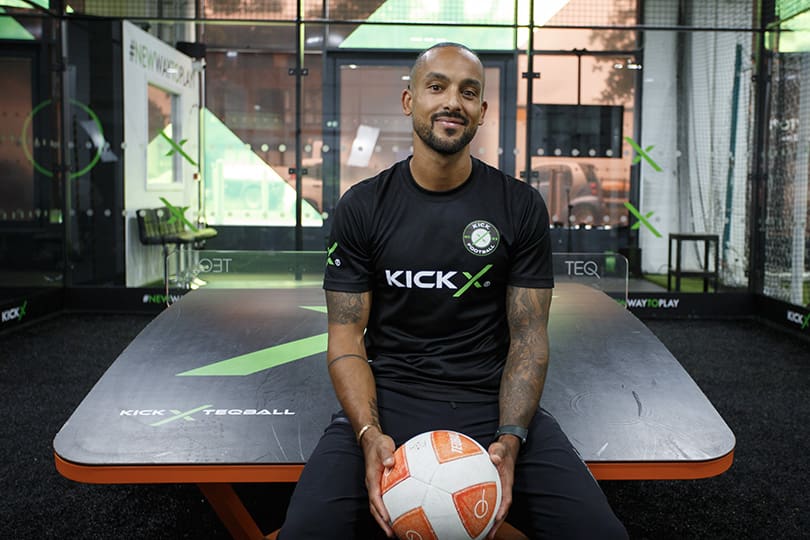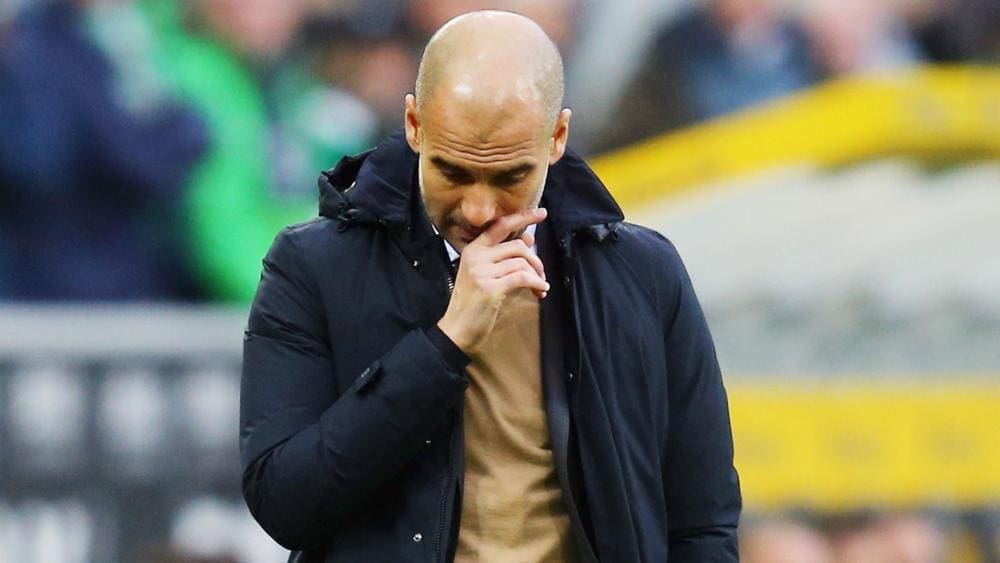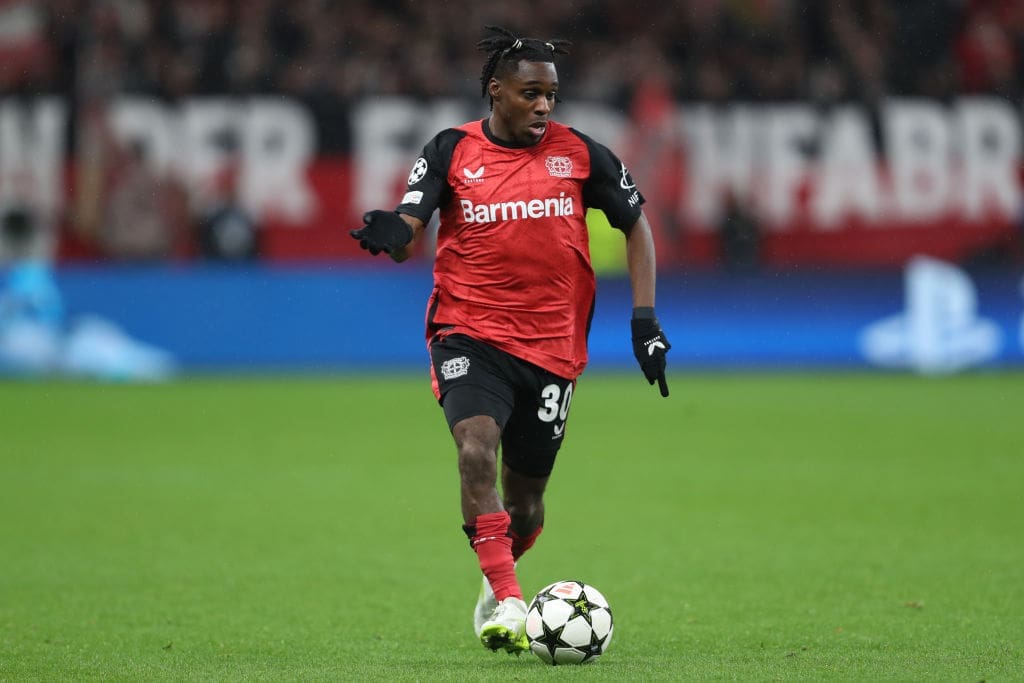Within all 30 team is a pyramid. Here's a look at each show's minute go-to player.


Anyone can list the best players in the NBA, but basketball is as much about chemistry as it is talent. Within each of the league's 30 teams is a hierarchy, and how well each of the five players on the court understands and performs his role within that hierarchy is every bit as important as his individual skill.
Ideally, a lineup has its superstar, a deferential co-star, a third star who owns his role, a fourth option and a fifth starter to tie it all together — clear Nos. 1, 2, 3, 4 and 5. In this series, we rank the five best players from each tier for a broader look across the league. How close does your team come to an ideal lineup?
(Click here to see the NBA's top No. 1 options.)
No. 2 options: The Deferential Co-Stars
What is a No. 2? He is, generally, the team's second option on offense. He can be an All-Star. In fact, he better be an All-Star if you want to compete for a championship. Maybe his skill level is a hair below his top teammate. Maybe his skill set is more complementary. Or maybe his personality is more obsequious.
Whatever the case, he understands he is not the No. 1, and that is what is most important. Teams do not reach their potential when the No. 2 believes he is the No. 1. All the greats had a Hall of Fame No. 2, and all of them knew where they stood. Bill Russell had Bob Cousy. Michael Jordan had Scottie Pippen. Larry Bird had Kevin McHale. Kareem Abdul-Jabbar had Oscar Robertson, then Magic Johnson, and then Magic flipped it. Shaquille O'Neal had Kobe Bryant, who then had Pau Gasol. It has a way of sorting itself out.
Without further ado, your five best No. 2 options ...
1. Anthony Davis, Los Angeles Lakers
There was a time when we thought Davis would be a surefire No. 1. At the age of 24, he finished third in both the MVP and Defensive Player of the Year races. He grew up a ball-handling guard and grew into a rim-protecting behemoth, retaining the skill and athleticism that drew him to the sport. He has all the tools, even enough of an outside shot to pose a threat. Few players are more dangerous around the rim.
The New Orleans Pelicans never built a serious contender around Davis, and he soured on serving as the de facto leader of a pretender, so he requested a trade — specifically to the Lakers, for whom he would acquiesce to LeBron James, because everybody acquiesces to James, even if he is about to turn 40 years old.
The two won a championship together when Davis was an essential part of their run in the Orlando bubble. He averaged 25 points (on 57/42/94 shooting splits!), 10.7 rebounds, 3.2 assists, two blocks and 1.3 steals per game in the NBA Finals, and James was still the series' unanimous MVP. Davis is built to be a No. 1 and seemingly more comfortable being the No. 2, which comes with some criticism, fair or unfair.
2. Devin Booker, Phoenix Suns
Booker was the best player as a 24-year-old on a team that reached the NBA Finals — and featured a ton of talent — in 2021. He is now squarely in his prime, serving as "unsung MVP" of Team USA's run to the Olympic gold medal. He is a pure scorer with a telegenic jump shot whose defense has steadily improved.
Booker was Phoenix's alpha until the arrival of Kevin Durant, whose deferential demeanor belies a game that demands deference. Durant is one of the 15 greatest players ever, and he was once the No. 1 on a team that boasted Stephen Curry. Just ask his two Finals MVPs. As much as we poke fun at Durant's ring-chasing tour, his legacy is greater than every active player but one (or two), and that commands respect.
Whether the Suns would be better off if the team ran through Booker instead of a 36-year-old Durant is a legit question. Chris Paul is a table-setter by nature, so he and Booker easily struck a balance, but that is harder when your co-star is the most talented scoring forward in league history. They do what each other does, and solving that dynamic takes more than a single season. At least that is the hope in Phoenix.
3. Jaylen Brown, Boston Celtics
Brown has had years to solve his interplay with teammate Jayson Tatum. For a while folks wondered who was better between the two. Dallas Mavericks coach Jason Kidd leaned Brown during the NBA Finals, but the rest of us have sorted this out. Tatum has made the All-NBA first team and placed top six in the MVP race each of the past three seasons. Brown has made one All-NBA team and never received an MVP vote.
Well, at least until he captured Eastern Conference and Finals MVP honors in June. Some might say that reopens the door for questions about who is the best player on the Celtics. I think it is a reflection of how well Brown and Tatum have navigated the difficulties of dividing obligations between similar stars.
Brown does not augment Tatum so much as he has learned how to succeed alongside him. Tatum takes on more playmaking responsibilities; Brown accepts a greater defensive challenge. That split spawned a title — not before we wondered if Brown wanted his own team. There will always be some underlying tension, and how well they continue to balance it will determine whether Boston repeats as champions.
4. Bam Adebayo, Miami Heat
Adebayo is as competitive as anyone in the NBA. He is one of the league's best defenders. He is certainly its most switchable. He has the size and strength to bump bodies in the post and the athleticism to move with anyone on the perimeter. And he has found his way to 20 points per game over the past three years.
But his limitations as an offensive player prevent him from becoming Miami's top dog. That and the fact that Jimmy Butler, the embodiment of an alpha, is on his team. Adebayo is a natural No. 2. His greatest strengths — defense, rebounding, cleaning up random offensive possessions — are complementary skills.
This might be why Miami's coaching staff has to implore Adebayo to become more of a scorer when Butler is off the court. Even then, Miami has struggled. As skilled as Adebayo is, including his passing ability, he does not pose a threat from distance, and it is awfully hard to be the alpha when that is missing from your game. That said, any No. 1 in the league would happily accept Adebayo as his No. 2.
5. Jamal Murray, Denver Nuggets
People forget how good Murray was on Denver's title run. He averaged 26 points, seven assists and five rebounds per game in the 2023 playoffs, numbers only matched on a championship run by LeBron James, Michael Jordan and his teammate, Nikola Jokić. He might be a No. 1 if his team's No. 1 was not so clear.
Then again, Murray has never made an All-Star team. He struggled in last season's playoffs and was worse in the Olympics for the Canadian national team. Concerns remain about the ACL injury to his left knee.
Murray plays off Jokić as well as anyone plays off anyone. Their pick-and-roll combination is as lethal as any play in the NBA — no matter the situation. If Murray is not one of the five best deferential co-stars in every regular season, he has been on the biggest stage. The Nuggets paid him in kind, giving him a max contract, so expect him to return to form as the NBA's only non-All-Star superstar — a bona fide No. 2.
Honorable mentions
6. Domantas Sabonis, Sacramento Kings
7. Kyrie Irving, Dallas Mavericks
8. Karl-Anthony Towns, Minnesota Timberwolves
9. Pascal Siakam, Indiana Pacers
10. Damian Lillard, Milwaukee Bucks
11. Tyrese Maxey, Philadelphia 76ers
12. Jaren Jackson Jr., Memphis Grizzlies
13. Jalen Williams, Oklahoma City Thunder
14. Julius Randle, New York Knicks
The rest
15. Brandon Ingram, New Orleans Pelicans; 16. James Harden, Los Angeles Clippers; 17. Franz Wagner, Orlando Magic; 18. Alperen Sengun, Houston Rockets; 19. Darius Garland, Cleveland Cavaliers; 20. Miles Bridges, Charlotte Hornets; 21. Jerami Grant, Portland Trail Blazers; 22. Andrew Wiggins, Golden State Warriors; 23. Devin Vassell, San Antonio Spurs; 24. R.J. Barrett, Toronto Raptors; 25. Bogdan Bogdanović, Atlanta Hawks; 26. Nikola Vučević, Chicago Bulls; 27. Tobias Harris, Detroit Pistons; 28. Collin Sexton, Utah Jazz; 29. Dennis Schröder, Brooklyn Nets; 30. Jordan Poole, Washington Wizards.
Copyright Notice:
Datavictory copyrights this specification. No part of this specification may be reproduced in any form or means, without the prior written consent of Datavictory.
Link:



